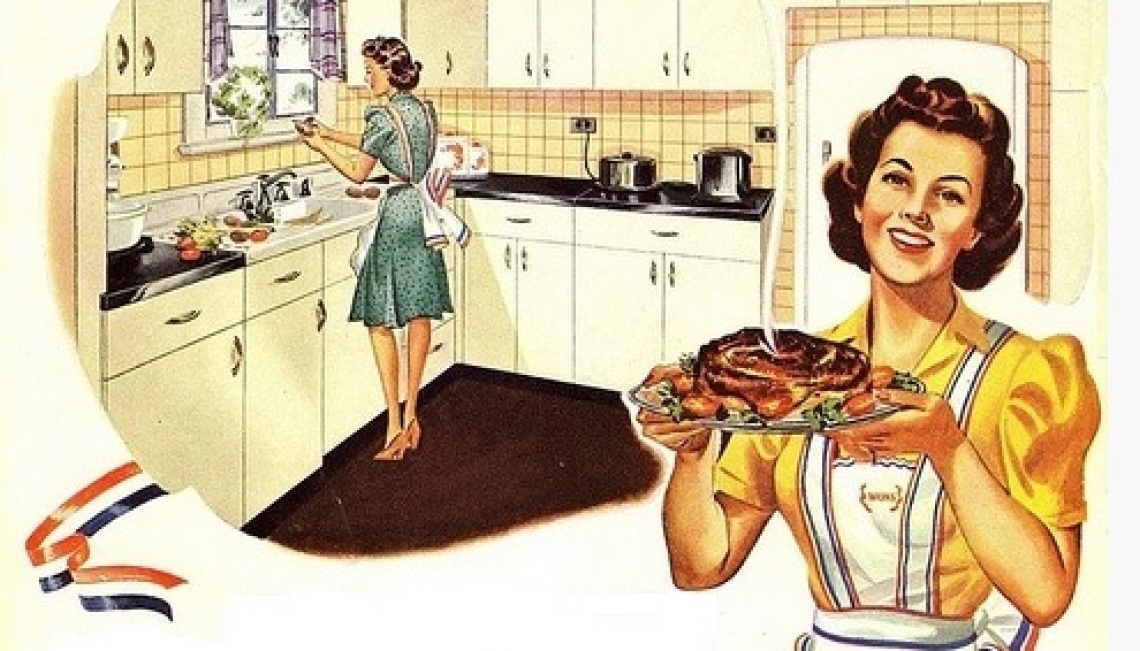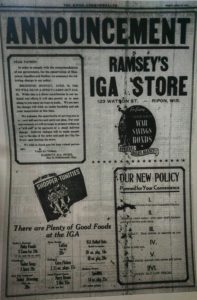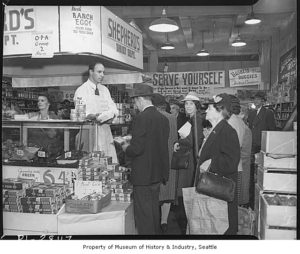Things have a way of coming around again. By that I mean, grocery delivery as an example. Prior to World War II housewives called in their grocery order to their grocer, who they most certainly knew on a first name basis. The friendly neighborhood grocer would put the order together and have their delivery boys deliver it to the home. Mr. Grocer would likely send a bill at the end of the month.
Surely, this type of shopping made the world a lot smaller. Smaller orders, more frequently. And having a personal shopper meant someone knew you and your household very intimately. Imagine having a personal grocer today doing your shopping – they’d know when a baby joined the house, when you adopted a new dog, when you tried the newest diet fad and then went on to the next.
An IGA announcement in the April 1943 hometown paper made it clear how grocery shopping during WWII would be forever changed:
“Dear Patron,
In order to comply with the recommendations of our government, for the conservation of Manpower, Gasoline and Rubber, we announce the following change in our policy:
Beginning Monday, April 19, 1943, we will be on a strict carry-out basis. While this is a direct contribution to our national war effort, it will also permit us to pass along many savings so made. We are sure the change will work no undue hardship and ask your cooperation at this time.
We welcome the opportunity of serving you in our new self-service and carry-out plan. For your convenience, we will arrange to prepare orders on a “will call” or by payment of a small delivery charge. Delivery charges will be made according to the size of the order and paid the City Delivery upon leaving the store.
We wish to thank you for your valued patronage.
Yours for Victory,
Ramsey’s IGA Store
Ray R. Hildebrandt, Manager
The advertisement goes on to state the New Policy:
- Fresh Fruit and Vegetable Display.
- Shopping made easier – with open shelf displays and self-service push carts.
- No Delay! Shop quickly or leisurely as you like.
- Clerks to help you.
- All items plainly marked with prices and points.
- Everyday low prices!
What the advertising is describing is the birth of modern grocery shopping. Bulk shopping would come later, to the mind-boggling astonishment of my grandparents’ generation.
Were the changes to grocery shopping for the good? How was manpower, gasoline and rubber saved if instead of a grocer making deliveries switched to all his customers coming to the store individually? What long-term effect did the change have on customer service? Is it convenience that is bringing some people to grocery delivery services like Peadpod and Door-To-Door Organics (two I have used myself)? At a time when homemaking was desperate for convenience, was this an example of contrary change?
As I think about the advertisement, I can’t help but think about how the new policy led to modern patterns of consumerism and self-indulgence that leads to obesity. For such a small advertisement in the paper, the results were huge.


